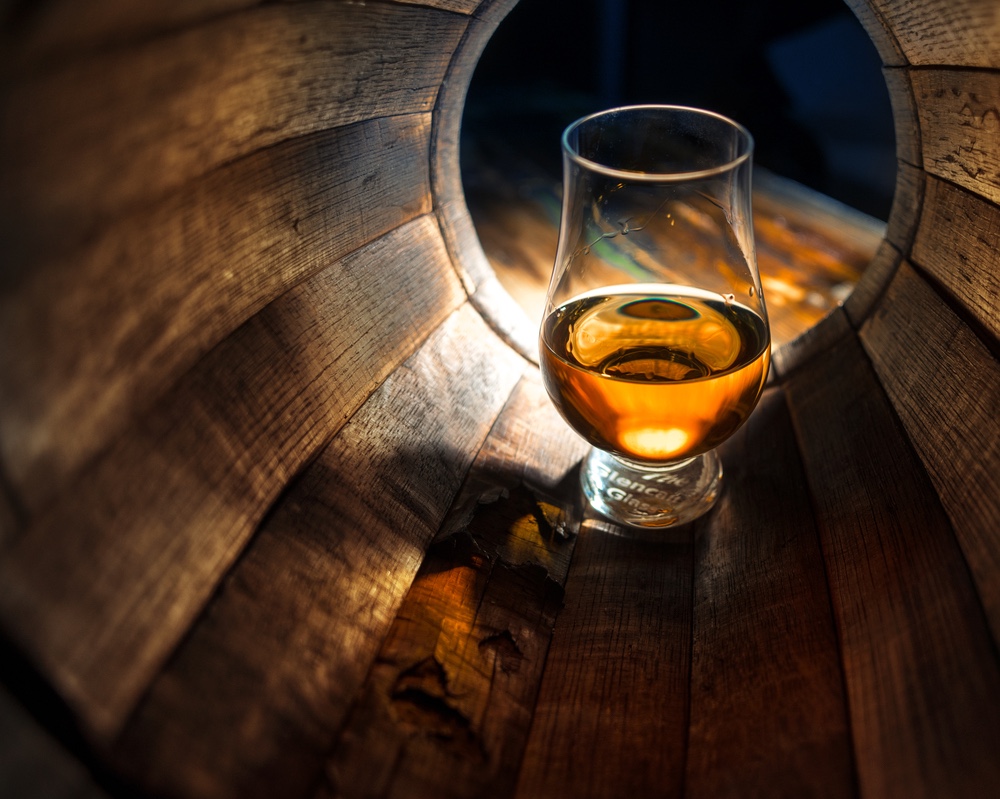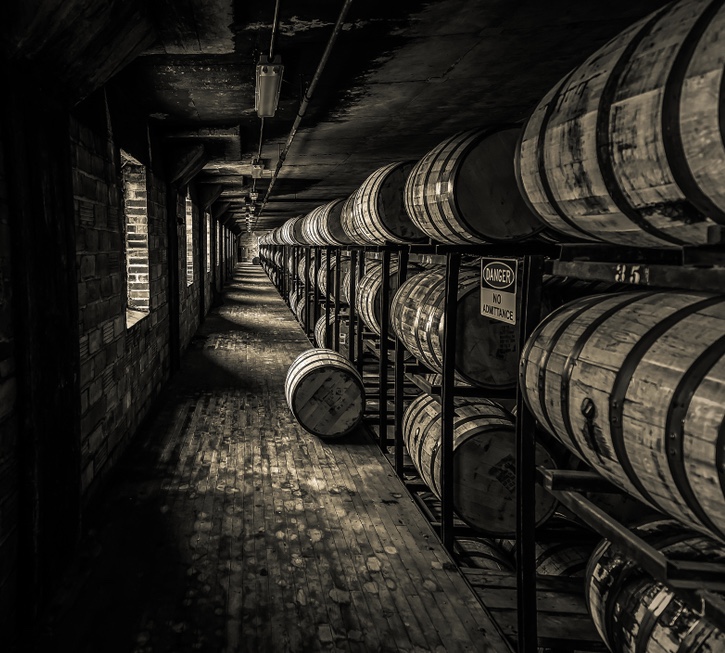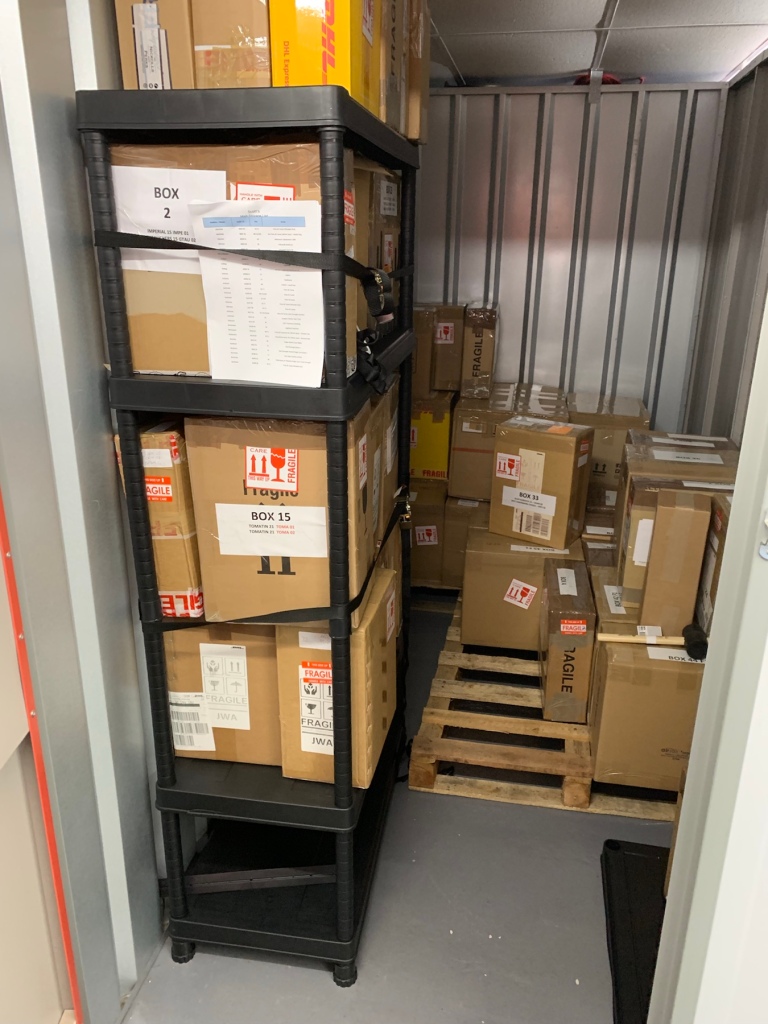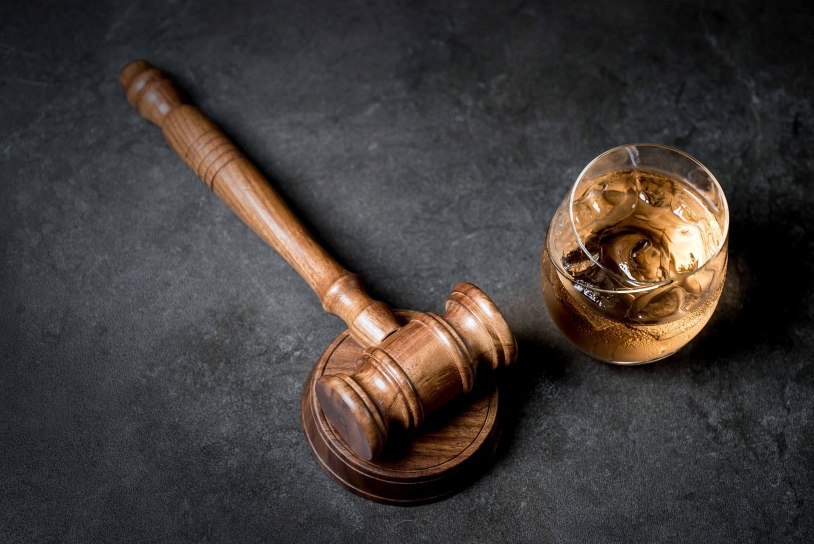Why investing in casks is can be more expensive and not as good a deal as you may think.
I recently made a post of why buying a cask is not necessarily a good investment. So concerned about this, I’ve done a little additional research to back up an earlier article that I wrote in 2019.

Despite the title of this article, no distillery is out to con its customers. There may be dazzling marketing, but they are after all trying to sell their product. There are also companies trying to sell investments in casks, which are essentially brokers. The devil is in the detail and you really need to look at who is selling, the terms and conditions, as well as what you hope to achieve with your cask ownership. Not all the companies advertising on social media may be the best to deal with. It will also help if you know about the laws regards alcohol in bond. And having a cynical view of marketing claims is a definite advantage, as this is where the con comes in, and it is essential you read the T&Cs in detail to check if the marketing matches your expectations and the reality.
On social media, there are many adverts encouraging people to invest in whisky or to buy a cask. I see many people tagging their friends and you often see the pattern of conversation along how they think it’s a good idea, but I guess that the vast majority of them have no clue as to what the actual ‘investment’ may involve.
And it may turn out not to be the investment they think. This article is less based on opinion than the previous one, as I have done a lot more research by looking at the terms and conditions of various distilleries and cask sales. I have also been in contact with a whisky broker Mark Littler, who has been a very valuable source of information.
As mentioned last year, buying a cask can prove to be a profitable exercise if you pick the right cask from the right distillery, along with the right cask type and age it long enough. It is a minefield with a myriad of choices that will affect your final whisky. Some distilleries will offer you a choice of cask size and type, others don’t. Some will offer you the choice of how you want it diluted prior to bottling – either cask strength or to a set level – usually 46%, but this is something you have to see in the T&C’s.

Private cask sales have been available for years, but usually this has only been through a whisky broker. Nowadays, with a large number of new distilleries emerging in a booming market, they have a slight problem – they have to wait at least three years and a day before they can release anything known as whisky. Even then, some whisky just isn’t ready at 3 years old, so they have to get income somehow. There is a practice in the USA which sees some “Distilleries” buy in a spirit to their specification from a company called MGP (Midwest Grain Products). All the “Distillery” has to do is finish the spirit to its specification. As Bourbon only has to mature for 2 years, if this can be bought and finished for 6 months or less, then the owners can sell product quickly and start recouping costs and pay off their bankers. There will be an article on this process in the future.
Although some distilleries do sell alcohol distilled elsewhere under their own brand, this is less than ideal. Ever wondered why there has been a boom in Gin? You don’t have to mature it and a whisky distillery has all the facilities needed to make their own batch gin. Another easy way is to sell new make spirit – comes out of the same stills as the ageing whisky, only it hasn’t aged as much, if at all and may be infused with other ingredients and given a proprietary name. Likely something original like ‘Aquavitae’ !! The other way to take in money quickly is cask sales. This gets a generous amount of money in quickly, and the distillery has a guaranteed sale.
Get Ready For Expense!
Buying a cask is simple enough from what I have seen however, all good things must come to an end at some point. When it comes to the end game, and the cask is ready for bottling, this is where it becomes expensive. A cask of whisky is treated as deferred duty goods – i.e no tax has been applied to the cask at the time of purchase. So, when it is time to remove from bond, these taxes are now due.
The cask will have to be gauged prior to removal from bond. This is to assess the quantity of liquid, and also the amount of alcohol so duty can be calculated.
Let’s assume that you’ve purchased a Hogshead of whisky which is 250 litres of bulk fluid for price of £10k. This is usually filled at 63.5% alcohol. We will assume 2% evaporation per year as an average, which will leave you with 204 bulk litres. I cannot predict what the abv will be at the end of the maturation, but 50% makes for easy maths. However, a lot of 10 year old single cask bottlings have the abv around the 60% mark which means the angels have taken the water component and not the alcohol.
Your duties payable will be –
Deferred cask purchase V.A.T @ 20% = £2000
You will have 102 litres of pure alcohol. The duty is (as at 5th Jan 2019 £28.74 per litre)
102 x 28.74 + 20% V.A.T = £3517.78
So, that’s £5517.78 in tax. However, it is not the end of the charges.
204 bulk litres will get you around 290 70cl bottles. Assuming a price of £10 + VAT per bottle (which includes labelling and cork) will cost you another £3420. However, if you are going to bottle at less than cask strength, you will have more bottles.
At the best, your ‘investment’ has cost you £19637.78 – nearly double your initial investment, plus, you’ve possibly missed out of 10 years of savings interest on the initial £10000.
Next, if you have to get the cask moved to a bottling plant, allow another £700. This cost will not apply if the distillery has a bottling plant on site, but few do.

All of the above is summarised in a great video that broker Mark Littler has produced, and is one of a series of nine about cask purchases. You can see the video concerning the hidden costs of cask purchase here
It could be worse!
Let’s assume the worst, and your cask had 60% abv, and you want to dilute it down to 40%. I don’t know why you would want to be that crazy, but this is the worst scenario
60% of 204 bulk litres is 122.4 litres pure alcohol
therefore tax =£28.74 x 122.4 = £3517.78
+VAT (20% of £3517.78 = £704.55) = £4221.33
To dilute to 40% you will need to add around 102 litres of water to your cask volume which will now give you a bulk volume of 204 +102 = 306 litres. Thats enough for 437 bottles
437 bottles + VAT = £5244.30
Adding everything together this brings the grand total for a 40% whisky diluted from 60% to £22,165.33
What I have not allowed for is the cost of shipping the bottles to where you want to store them. I’d probably allow around £1200 pounds as a minimum, as you are going to be shipping between 49 and 73 cases of whisky (assuming 6 bottles to a case), and a single case of whisky usually costs me around £20 within Scotland. The cost of shipping will very much depend on which courier you use, and where you live.
The total weight of 437 bottles is going to be close to a ton, and will easily take up a small storage unit. Going by my storage costs, I pay around £100 a month for a 5.5 sq m locker and insurance up to £30000. You will have to find a storage unit that will accept such a large amount of alcohol plus find suitable insurance.

So, the cost per bottle can vary from £68 (50% example) down to £51 (60% diluted to 40% example). The one thing I haven’t allowed for is the length of maturation. Most cask sales will allow for 10 years storage and insurance. If you go beyond this, then you will be liable for extra fees. However, the addition of the cost per bottle isn’t likely to be overly significant. Just remember though, if you are keeping your cask more than 10 years, you are then going to have to consider the point you will bottle it at, which will require a re-gauge to obtain a duty paid sample – normally 100ml. This will incur charges. It is a worth while move, as you need to check the health of your cask, by assessing the rate of evaporation, the alcohol level, and with the sample you will be able to taste it and see for yourself. A key point here is that whisky has to be above 40% abv to be called whisky. The rate of evaporation increases as the bulk level decreases exponentially, so it is worth keeping an eye on it.
And here is the major catch for private cask purchases.
You can’t sell it. Certainly not very easily.
You need to look very carefully at your terms and conditions. Not one of six distilleries I contacted that sell casks, not one of them would allow a private individual to sell their bottles. Some gave options to sell the cask on to an independent bottler, or for another business to commercially sell, but most of the new start distilleries are eager to protect their brand. They certainly do not want anybody trying to take away parts of their potential revenue such as single cask bottlings.
However – lets imagine that you were allowed to sell your whisky bottles, you would need –
- A Personal Alcohol Licence (I have one, therefore I can authorise alcohol sales in Scotland on licensed premises but not my own house). The total cost for my licence plus the training was £170. I also need to refresh the training every 5 years.
- A Premises Licence – You will need a licence for the building where you are going to be selling alcohol from.
- Premises – You are not likely to be granted a licence for your own private home or garage, so you will need a commercial address
- You will need to register with the Alcohol Wholesaler Registration Scheme.
Selling alcohol illegally has a maximum fine of £20,000 in Scotland under section 142 of the Scottish (Licensing) Act 2005. There could also be a custodial sentence in addition to this of 6 months in other parts of the UK.

The only way you could sell your whisky bottles would be through an auction house, but there is caveats here as well…
- You could sell the whole lot at once at auction, but going the auction house route could require you to register on the Alcohol Wholesaler scheme, for which when I looked at the form was for a business or sole trader. Therefore I imagine you’d need to set up a company.
- You could sell the bottles in dribs and drabs, through auctioneers, but there is a problem to this as well – you risk not getting back the cost per bottle, certainly because of the next point.
- Your bottle doesn’t have a brand. The distillery name is a trademark, and legally all you can say is that it was distilled at xyz distillery. and the type of whisky it is. You do not have to put the name of the distillery on the label, nor the age or the geographical region it comes from, but you do legally have to place the whisky type on the label, as well as the volume and the abv, as well as the fact it was distilled, matured and bottled in Scotland.
- Selling large numbers of an unknown brand whisky, regardless of what distillery it is from will essentially flood the auction market. I’ve seen and own a bottle of Glenfiddich of which only 220 bottles were made. It isn’t that rare as such, as every now and again a bottle pops up. It is holding its value, but can’t say it’s rare enough to make me rich yet. Similarly, I own a special Tormore from Peterhead Prison 125th anniversary. Again, these crop up every now and again, but aren’t really that rare, and it is a Tormore – a distillery that provides more for blend than single malt. A cracking single malt from Robertsons of Pitlochry I bought for £59 sells at auction for £30. Pity, it was a cracking 9 year old Benrinnes. Putting a couple of hundred bottles of an independent, unbranded whisky on the market will not raise a good price.
- I’ve noticed a softening of whisky auction prices for a lot of bottles. Things that were popular are starting to go down, even in limited editions. Some are climbing and will continue to, but I feel we are starting to feel the effect of a Glass Loch – that’s another article though! But this will affect your ability to achieve good prices.

One last big thing that you need to know about cask purchase – although it has been often reported that rare whisky is outperforming gold on the Knight Frank index since its appearance there in 2018, this is not the cask whisky they are talking about. The Knight Frank index refers to luxury products that are readily available for sale, and in this case will be the likes of your rare bottles of whisky like 25 year old plus Macallan, Highland Park, Ardbeg, Glenmorangie: – the perceived luxury whisky brands, of which these are just some examples. Remember, no matter how old your whisky gets, it will never command the same prices as the aforementioned as it just does not have the status. Remember, Aldi’s have been selling 40 year old whisky. You need to have the brand to get top whack.
Unfortunately, one of the 6 distilleries I looked at did mention the Knight Frank index, and I feel this is a bit of a misleading statement. Your whisky will not be rare or that valuable unless you can sell it back to the distillery after a few decades or an independent bottler. Your bottles, because as an individual you can’t market them, will never give you the multi thousand prices we all dream about. The only way they can maybe realise a good price in my opinion is if the distillery closes, but still may not guarantee you the money to retire on.
Now for the good news – sort of.
The main reason for buying a cask for the majority of people is to celebrate an anniversary, marking an event or birthday, for marketing or gifting purposes, or for just the sheer hell of it because you are interested in the process. I may even go down that path one day, and buy a cheeky wee quarter cask. Where bottling your own cask may be expensive, doing it as a collective means you can maybe save money, or get a unique whisky from a new distillery. Remember what it is costing you per bottle? Don’t forget if you were to buy that same bottle in a shop, there will usually be a 50%+ mark up on it. However, if you follow my blog and see my comments on the value of whiskies I review, I would suggest to you that a whisky at 50% that is say 18 – 25 yrs old is a bargain if it only costs you £68 a bottle. A ten year old bottled at 40% that costs £51 a bottle is possibly not such a bargain, but would depend on the whisky. You’d need to be guided by somebody who knows the ins and outs of the business.

Your best bet all round if you want to think about buying a cask is perhaps contact a broker. They will be able to give you unbiased advice and guidance on the best way to invest in whisky casks. What’s even better is that they will have access to casks that you will not be able to get yourself – you can’t just go to any distillery and ask to purchase. A broker will have access to the casks that will make the more sensible investments long term. Brokers will have fees, but they could just be the difference to a small profit or a much bigger one. Or a nicer bottle of whisky to sip when reading my War And Peace Articles.
Lastly…….
I’d like to thank Mark Littler for his help in writing this article. If you have any questions about cask purchase, he’ll be the person to ask. His website is marklittler.com
I have not named any of the distilleries concerned, as their terms and conditions are commercially sensitive, and it is up to you to make sure you understand what is required of you when you come to sell or bottle your cask. Remember, as in all investments, the value of whisky can go up or down, and what distillery or style of whisky is popular now, may not be popular in a decade’s time. Your capital is at risk.
Slainte Mhath!
Scotty
This blog is written as a hobby. If you liked this article, consider clicking here to visit my Facebook page or following the blog by clicking on the icon at the bottom of the browser page somewhere to get tastings, visits and articles to your email inbox. Also, feel free to share, and spread the whisky love ❤️❤️
Scotty’s Drams encourages responsible drinking. To find out the facts about drink, and where to find help if you need it visit Drinkaware.co.uk by clicking on the link.
Photo credits
Drunk Kermit – Pixabay.com
Storage Unit – authors own image
All other photos – Shutterstock
One thought on “The Great Cask Con”